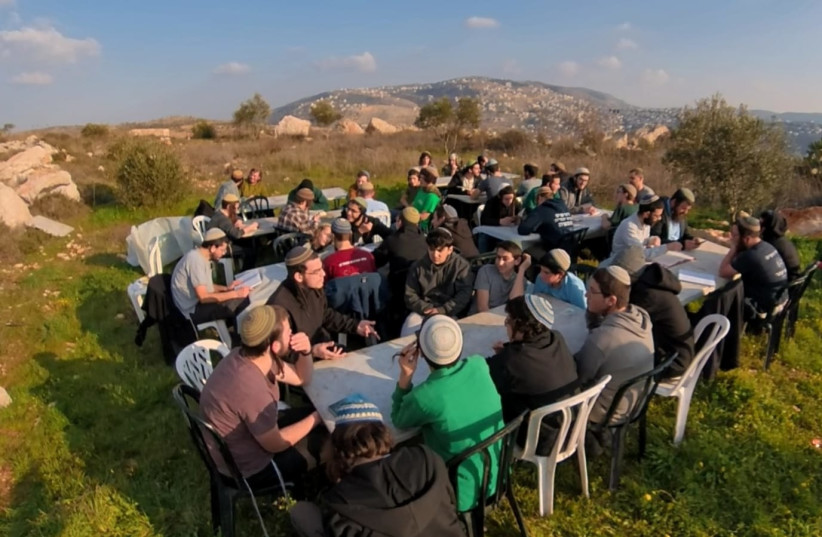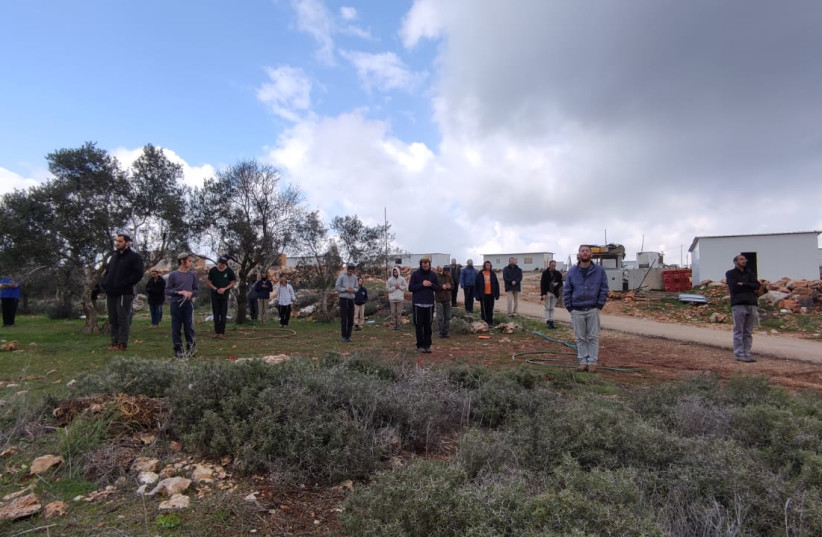Right-wing politicians and settlers rejected a plan to relocate the West Bank’s Homesh Yeshiva – now on a hilltop near the Shavei Shomron settlement – to the Evyatar hilltop off Route 505, a short distance away from the Tapuah junction.
“The Homesh Yeshiva will not move to Evyatar: It will remain in Homesh forever,” the right-wing Nahala Movement said in a statement on behalf of both communities.
The idea of resolving two flash-point issues in Judea and Samaria, through such a deal championed by Defense Minister Benny Gantz, has been floated for the last month, returning to the headlines this week following a report on the swap of Evyatar for Homesh by KAN News.
Religious Zionist Party MK Orit Struck said that the fate of both locations rested with Prime Minister Naftali Bennett and his Yamina Party, not Gantz.
This attempt to “execute a retreat from Homesh” and re-brand it as “the creation of a yeshiva at Evyatar,” has been put together by the top politicians in Yamina and not by the defense minister, Struck tweeted.

“Who are they trying to fool?” she asked. “You should be ashamed!”
The one who should “promote Evyatar, and also make sure that the yeshiva in Homesh is not uprooted, and even built, is number 1 in name @naftalibennett,” Struck tweeted.
“There is a limit to the promises he can break,” she wrote.
The Left also dismissed the plan.
“What kind of corrupt deal is being made? Homesh for Evyatar? Both are illegal,” Deputy Economy Minister Yair Golan (Meretz) said. “Both are a testament to unbearable far-right violence and must not be allowed to remain on the ground in any arrangement.”
MK Mossi Raz (Meretz) called it an agreement among thieves. “It’s like offering a bank robber the funds from the first theft if he returns the money from the second robbery. This isn’t how one acts in a nation of laws.”
Bennett and Gantz had already agreed in late June to authorize both a yeshiva and a new community on the Evyatar hilltop, in exchange for the voluntary evacuation of 50 families from there.

Deputy Defense Minister Alon Schuster told the Knesset this week that there was enough state land on the Evyatar hilltop to build a yeshiva and that the government plans to stand by an agreement it made to do so, pointing out that outgoing attorney-general Avichai Mandelblit had said there was no legal impediment to this plan.
The matter is now in Gantz’s hands, as is the issue of when to evacuate the unauthorized Homesh yeshiva.
The push to legalize a settler presence on both hilltops in Samaria has been strengthened by two terror attacks last year in which two Jews were murdered: Yehuda Guetta, 19, near Evyatar and Yehuda Dimentman, 25, at the Homesh exit.
Homesh, however, has held a unique place within the heart of the settlement movement, because it is the location of one of four northern Samaria settlements the IDF destroyed in 2005 as part of the Disengagement plan.
The Homesh yeshiva, which had been located in the original settlement, has existed illegally on the site in modular structures in an attempt to preserve Israel’s holds on the area, with a hope that the government will rescind the Disengagement and rebuild the settlement.
It’s a move that is legally complicated because the High Court of Justice has already recognized that most of the property on the hilltop belongs to Palestinians from the nearby village of Burka and has upheld their right to farm that land.
